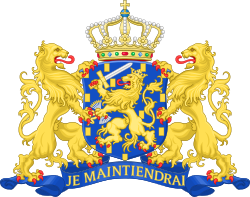Christian Democratic Union Christelijk-Democratische Unie | |
|---|---|
| Abbreviation | CDU |
| Leader | Harm van Houten |
| Founded | 11 December 1926 |
| Dissolved | 8 February 1946 |
| Merger of | Christian Social Party Christian Democratic Party League of Christian Socialists |
| Merged into | Labour Party |
| Newspaper | De Strijder De Christen-democraat |
| Ideology | Christian democracy Pacifism Christian left Christian socialism |
| Political position | Centre-left |
| Religion | Reformed Churches in Repaired Union |
| This article is part of a series on |
| Politics of the Netherlands |
|---|
 |
The Christian Democratic Union (Dutch : Christelijk-Democratische Unie, CDU) was a minor progressive Protestant [1] political party in the Netherlands during the interwar period.